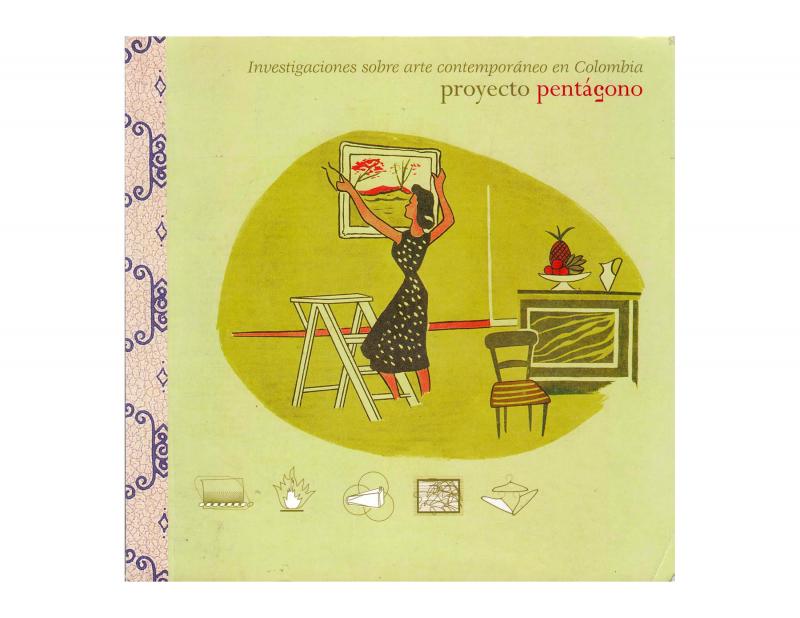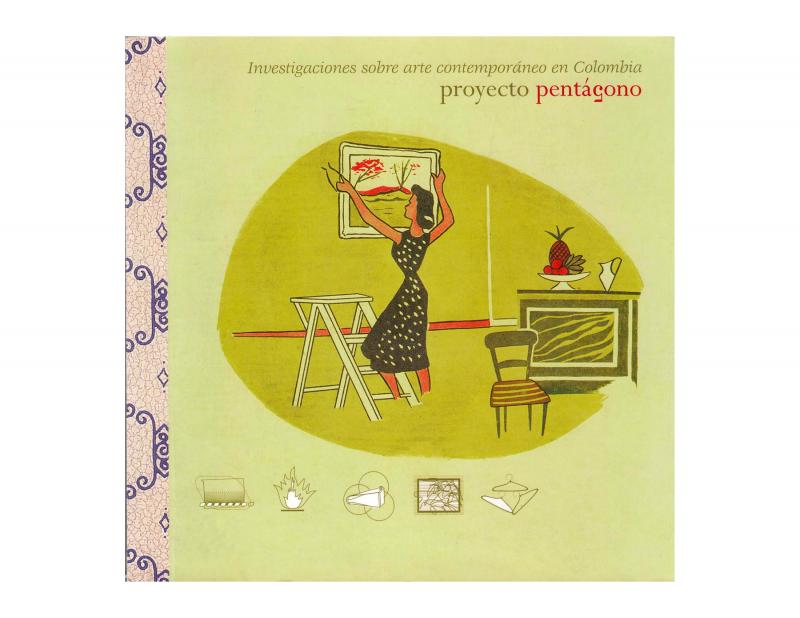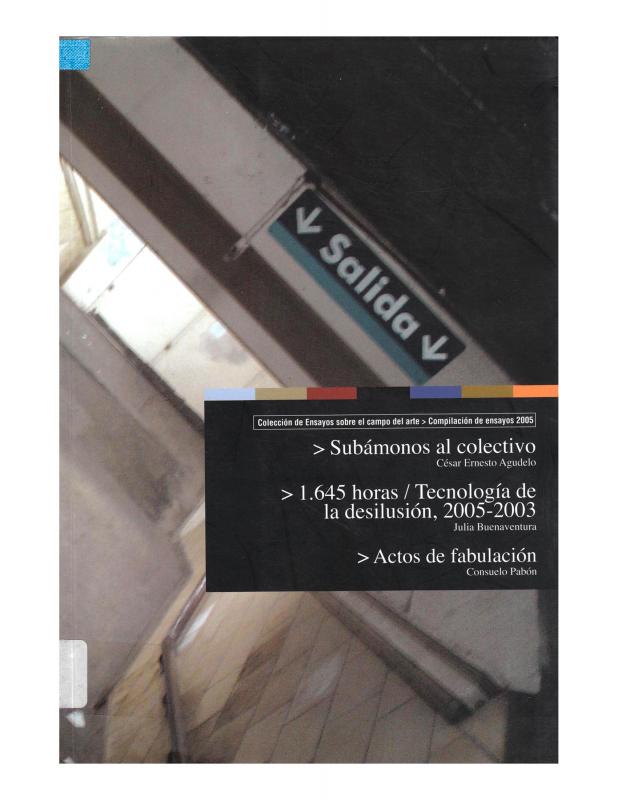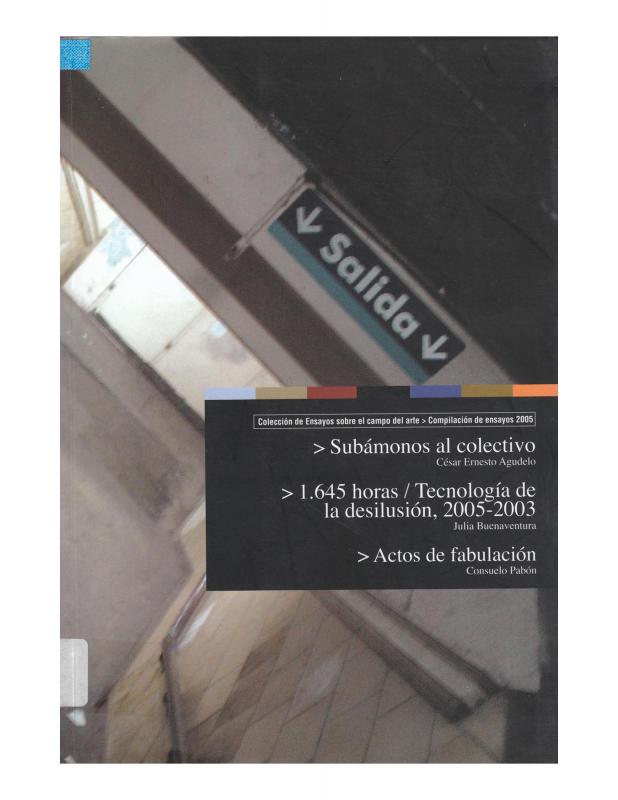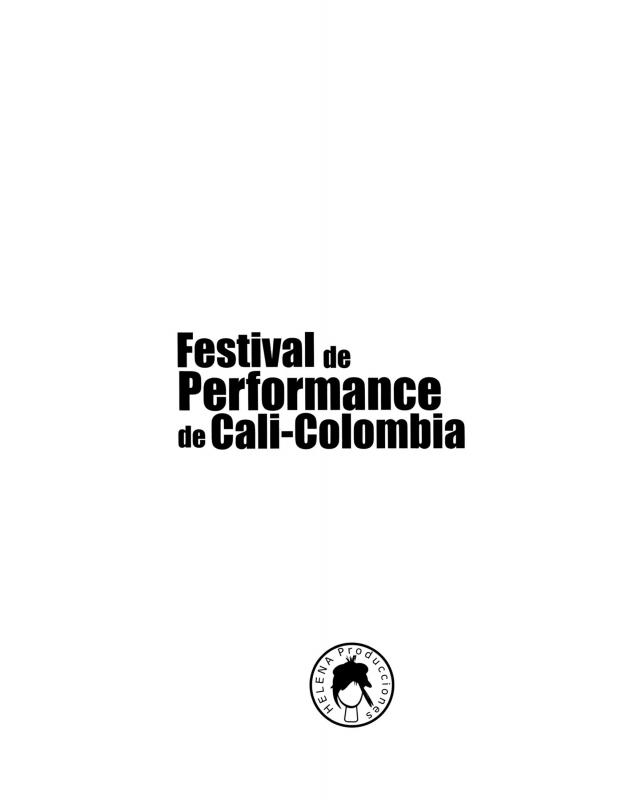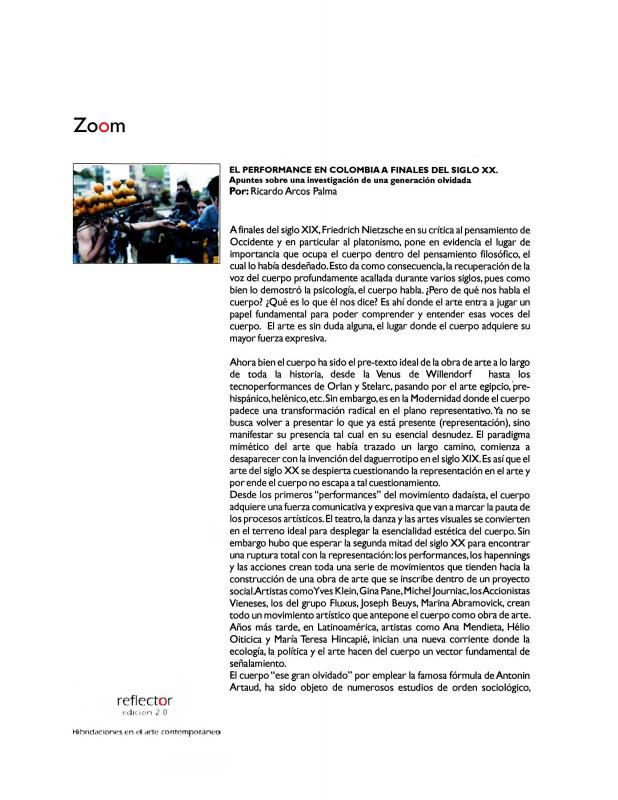This document attests to the method, practical and theoretical basis, and impulses and concerns involved in 360º, a project developed by Colombian artist María José Arjona (b. 1983) for Actos de Fabulación (2000) [see doc. no. 1099666, doc. no. 1099681, doc. no. 1129442, and doc. no. 1129458], a curatorial and research project by Consuelo Pabón (b. 1961). The text makes reference to psychoanalysis, nuances of language, rationality and irrationality as complementary forces, dreams, and mostly the body as the only instrument capable of effecting real change. The artist understands performative images, and their gestation as drawings is a mental cartography that traces experiences in relation to thoughts. Once displayed to the public, those thoughts cease to belong to the artist, and due to their genetics, evolution and history, become a collective good.
Unfortunately, rather than shed light on the actions that Aronja proposes as a whole, the four sections she proposes are sketchy and disconnected. Only one of the explanatory paragraphs contains a detailed description of the action to be performed. This makes a reading of each of the phases, as well as the project as a whole, impossible. Nonetheless, the text does provide a detailed and first-person reflection on her thinking and work; she writes of the symbology of the various materials she uses, and the possible connotations of those materials when exhibited publicly. Aronja closes the text by describing how those materials interact with her conscious being during the performance. Due to the inclusion of images, clippings, and drawings, this document provides a rich visual experience.
María José Arjona, who received a degree from the Academia Superior de Artes of Bogotá (ASAB) in the year 2000, lives in Miami, in the United States. Since 1997 and into the present (2009), she has taken part in a number of group shows, including the second and fifth editions of the Festival de Performance de Cali (1999 and 2002 respectively), and Body Over Water (2005) at the Frost Museum in Miami, Florida.
For further information on Arjona, see doc. no. 1102548 and doc. no. 1129750.

